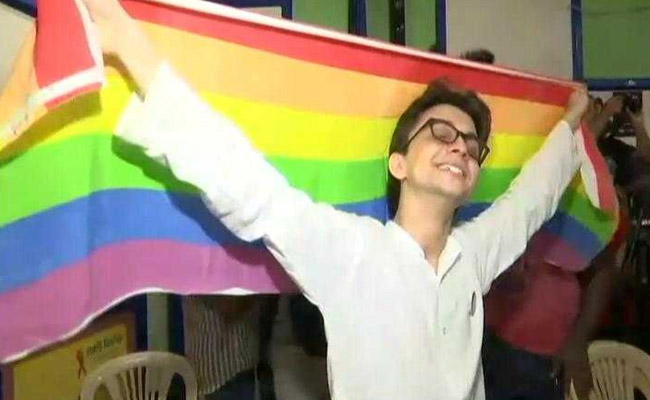
In what can be called a landmark verdict, the Hon’ble Supreme Court scrapped the controversial Section 377, a 158-year-old colonial law on consensual gay sex. Reversing its own decision, the Court said that the Section is irrational and arbitrary. Further, it said that LGBT community has rights akin to other citizens, that there must be respect for these rights, and criminalizing gay sex is irrational and indefensible. The law must be interpreted as per the requirement of changing times said the Court in its judgement.
The historic judgement came in light of a batch of writ petitions filed by dancer Navtej Jauhar, journalist Sunil Mehra, chef Ritu Dalmia, hoteliers Aman Nath and Keshav Suri and business executive Ayesha Kapur and 20 former and current students of the IITs. The issue was first raised by the NGO, Naaz Foundation, which approached the Delhi High Court in 2001.
Speaking about this, Padma Shri Awardee, Dr KK Aggarwal, President, HCFI, said, “The medical community has always considered homosexuality as a normal and natural phenomenon and not a disease or crime. It becomes important now for a medical doctor to know if the person is a LGBT. Till now, many of them did not come forward and disclose their orientation fearing the law. The job of a doctor or the judiciary is to change with the changing times and broaden, delete or re-interpret the laws as per the changing needs of the society. It is indeed heartening to note that the Court is now coming to the rescue of people, which will further help in reducing the mental and social disorders in the society.”
The Indian Psychiatric Association indicates that homosexuality is not a psychiatric disorder. This is in line with the position of the American Psychiatric Association and the International Classification of Diseases of the World Health Organization which removed homosexuality from the list of psychiatric disorders in 1973 and 1992, respectively.
Adding further, Dr Aggarwal, who is also the Vice President of CMAAO, said, “The first role of a judge is to uphold the constitution and the rules of the law. His second role is to bridge the gap between the law and the society. His third role is, in view of globalization, to connect the law with economics in decision-making process and to be a person who contributes to the economic progress of the nation. Rule of the law is the basic feature of the constitution and a judge is its guardian.”
Following are some key observations of the Supreme Court (TOI).
“Consensual sex between adults in private space, which is not harmful to women or children, cannot be denied as it is a matter of individual choice.It amounts to a retrograde step if we accept the verdict on criminalizing gay sex. Section 377 of the IPC was a weapon to harass members of the LGBT community, resulting in discrimination. Any kind of sexual activity with animals shall remain penal offence under Section 377 of the IPC.Constitution nurtures dissent as safety valve of society, we can’t change history but can pass way for better future.
- Chief Justice Dipak Misra “Sustenance of identity is the pyramid of life. Right to privacy as part of right to life applies fully to LGBT community. Suresh Koushal judgment of SC in 2013 is retrograde.”
- Justice RF Nariman Homosexuality is not a mental disorder, which has been also recognized by Parliament. Centre must give wide periodic publicity to the SC judgment to eliminate stigma attached to LGBT community.”
- Justice Chandrachud “State has no business to get into controlling the private lives of LGBT community members or for that matter, any citizen… Decriminalizing gay sex is only the first step to bury the Colonial Ghost, adding that time has come to move forward and give the LGBT community the other constitutional rights…Denial of right to sexual orientation is akin to denial of right to privacy.
- Justice Indu Malhotra “History owes an apology to members of LGBT community and their families for ostracization and persecution they faced because of society’s ignorance that homosexuality is a natural trait; its penal suppression infringes a host of fundamental rights.”

